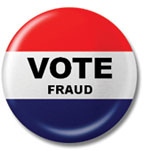
 Wisconsin ruling proves Voting Rights Act can still be effective’
Wisconsin ruling proves Voting Rights Act can still be effective’
By Freddie Allen NNPA Washington Correspondent
WASHINGTON, D.C. (NNPA) – After suffering a major setback last year in the Supreme Court, voting rights advocates are buoyed by a decision last week by a federal judge in Wisconsin striking down the state’s voter ID law as racially discriminatory.
John Ulin, a partner at Arnold & Porter LLP and trial counsel, said that U.S. District Judge Lynn Adelman’s opinion in the case made clear that the Voting Rights Act of 1965 still has teeth, even after the United States Supreme Court’s decision in the Shelby County case, which sharply limited application of the landmark law.
“The court understands the reach of Section 2 of the Voting Rights Act to extend beyond challenges to legislative redistricting and to apply to both denial and practices that prevent people from registering and casting their ballot,” said Ulin. “The evidence in the case was critical and the opinion makes that clear.”
Last summer, a majority of justices on the United States Supreme Court gutted the VRA of 1965 by invalidating Section 4 of the law requiring any covered jurisdiction with a history of voting discrimination to pre-clear any voting changes with the Justice Department or a federal court before implementing the proposed changes.
U.S. District Judge Lynn Adelman found enough evidence that Act 23, the law that required voters to present photo identification was unconstitutional under the Section 2 of the Voting Rights Act.
In his opinion, Adelman cited research conducted by Marc Levine, an urban studies and economic development at the University of Wisconsin-Milwaukee.
Levine said, “There’s little question that across the gamut of indicators that I’ve looked at that Milwaukee, and to the extent that I have indicators on Wisconsin, reveal the sharpest, most pervasive, most persistent, and most entrenched racial and ethnic socioeconomic disparities of virtually any region of the country.”
Levine testified that residential segregation and housing discrimination are major causes of the socioeconomic disparities between Whites and minorities in Wisconsin.
Research also showed that Black voters were “1.4 times as likely as White voters to lack a matching driver’s license or state ID.”
Writing in his opinion, Adelman said: “I find that the plaintiffs have shown that the disproportionate impact of the photo ID requirement results from the interaction of the requirement with the effects of past or present discrimination. Blacks and Latinos in Wisconsin are disproportionately likely to live in poverty. Individuals who live in poverty are less likely to drive or participate in other activities for which a photo ID may be required (such as banking, air travel, and international travel), and so they obtain fewer benefits from possession of a photo ID than do individuals who can afford to participate in these activities.”
Meanwhile, state attorneys presented little credible evidence that in-person voter impersonation fraud had even occurred in any recent, major elections in the state and the two cases of “unexplained” votes cast were likely because of poll worker error.
“If it is occurring in Wisconsin to any significant extent, then at trial the defendants should have been able to produce evidence that it is,” said Adelman. “The absence of such evidence confirms that there is virtually no voter-impersonation fraud in Wisconsin.”
Ulin said that other cases challenging voter ID laws under Section 2 of the VRA didn’t have the factual record that they needed to find that the laws disproportionately affect Black and Latino voters.
Ulin told the story of Bettye Jones, a Black senior citizen and political activist from the Ohio, who moved to Wisconsin to be closer to her family. Jones was born in the South at time when 1 in 4 Blacks were born at home and not in a hospital where she would have received an official birth certificate, one of the documents necessary to receive a state-issued ID in Wisconsin. Jones and her daughter, Debra Crawford trekked to Tennessee, where Jones was born and attended school, searching for any records that would satisfy Wisconsin’s photo identification laws, enacted in 2011. After several failed attempts, the Division of Motor Vehicles offices in Wisconsin issued Jones a photo identification. Unfortunately, Jones died shortly before the 2012 elections in November.
In a press release issued after the judge’s ruling, Ulin said that the court victory belonged to witnesses like Bettye Jones and Lorene Hutchins, who also suffered a great burden in obtaining a Wisconsin photo ID, and refused to be silent.
“Sadly, neither Mrs. Jones nor Mrs. Hutchins lived to see this day, but their voices have been heard,” said Ulin.
Katherine Culliton-González, the director of voter protection at the Advancement Project said that it’s kind of a myth that Section 2 of the Voting Rights Act of 1965 is only for vote dilution cases and the kind of cases that have to do with redistricting.
Culliton-González said that the Wisconsin case is absolutely a blueprint for other voters’ rights advocates to be successful in challenging restrictive voting laws that attempt to block, the poor and minorities from casting a vote.
“We’re involved in litigation against a voter ID law in North Carolina, which is also a more comprehensive voter suppression law, which includes cuts to same-day registration and cuts to early voting both of which also have a very severe impact on Black and Latino voters,” said Culliton-González.
Culliton-González continued: “This is a blueprint, not only with regards to voter ID claims in North Carolina and Texas and perhaps in other states, but also to other types of voter denial cases like cuts in early voting.”





Be the first to comment